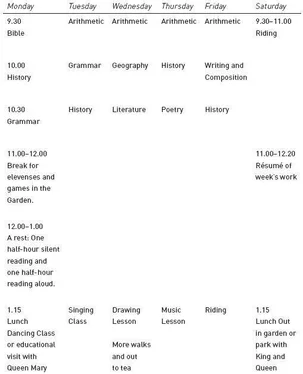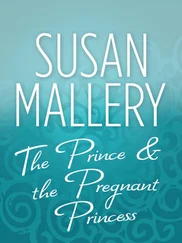Susan MacNeal - Princess Elizabeth's Spy
Здесь есть возможность читать онлайн «Susan MacNeal - Princess Elizabeth's Spy» весь текст электронной книги совершенно бесплатно (целиком полную версию без сокращений). В некоторых случаях можно слушать аудио, скачать через торрент в формате fb2 и присутствует краткое содержание. Жанр: Старинная литература, на английском языке. Описание произведения, (предисловие) а так же отзывы посетителей доступны на портале библиотеки ЛибКат.
- Название:Princess Elizabeth's Spy
- Автор:
- Жанр:
- Год:неизвестен
- ISBN:нет данных
- Рейтинг книги:4 / 5. Голосов: 1
-
Избранное:Добавить в избранное
- Отзывы:
-
Ваша оценка:
- 80
- 1
- 2
- 3
- 4
- 5
Princess Elizabeth's Spy: краткое содержание, описание и аннотация
Предлагаем к чтению аннотацию, описание, краткое содержание или предисловие (зависит от того, что написал сам автор книги «Princess Elizabeth's Spy»). Если вы не нашли необходимую информацию о книге — напишите в комментариях, мы постараемся отыскать её.
Princess Elizabeth's Spy — читать онлайн бесплатно полную книгу (весь текст) целиком
Ниже представлен текст книги, разбитый по страницам. Система сохранения места последней прочитанной страницы, позволяет с удобством читать онлайн бесплатно книгу «Princess Elizabeth's Spy», без необходимости каждый раз заново искать на чём Вы остановились. Поставьте закладку, и сможете в любой момент перейти на страницу, на которой закончили чтение.
Интервал:
Закладка:
“Of course,” Wallis murmured. She had no love for either the King or Queen, who had never acknowledged her and, in her opinion, had taken every opportunity to humiliate her. Why her husband couldn’t have simply stayed on the throne when he’d married her, she would never understand—or forgive.
“And his daughter, Elizabeth, raised with the same propaganda her father espouses, can’t reign either, so … And then we’ll need you— both of you,” Shellenberg stressed, “to urge the British to accept German occupation. With you as King, and the Duchess as Queen, of course.”
“It’s not about me, Shel,” the Duke said. “We need to end the war now before thousands are killed and maimed in order to save the faces of a few corrupt politicians. Believe me, with continued heavy bombing, Britain will soon be desperate for peace. The people will panic and turn against Churchill and Eden—and the current King, too, of course. Which presents the perfect opportunity to bring me back as sovereign.” The Duke sighed. “Of course, I can’t officially support any of this, you know.”
“What other options do you have?” Shellenberg asked.
There was a long silence. The Windsors knew they were running out of opportunities.
“Bermuda,” Wallis said finally, rolling her eyes and tapping ashes into a ceramic ashtray crudely painted with a bullfighter holding up a red cape. “Churchill and the present royals want to banish us to that godforsaken little territory. Conveniently out of their way.”
“Then don’t go,” Shellenberg urged. “You have the Führer, and the British people, counting on you to step up. To be their King and Queen.”
The Duke and Duchess locked eyes. “What do you say, dear?” he asked her.
The Duchess took a moment for a long exhale, blowing out a thin stream of blue smoke. It had been a long few years for her. First there was her affair with him, when he’d been the Prince of Wales. The unexpected death of his father, King George V, had been both shocking and painful for both of them. Their relationship nearly collapsed when Edward had taken the throne, crushed by the disapproval of the rest of the royal family.
They’d thought, perhaps foolishly, that once the family got to know her better, they’d accept her. But no. The Royal family, in particular the newly crowned George VI and Queen Elizabeth, had made it overwhelmingly clear Edward would never be able to marry her, a two-time American divorcée and a close personal friend of Joachim von Ribbentrop’s, Foreign Minister of Germany, and still stay on the throne.
Edward had chosen her and abdicated—but it had nearly killed him. And it broke her heart to see him made to choose. Their love had survived, but only just. Even in the bright sunshine of Portugal, they had their good days and bad.
“We’re going to enjoy ourselves at the villa of our good friend, Ricardo do Espírito Santo Silva, for now,” she replied, finally. “If—and only if—Germany invades …” She shrugged her narrow shoulders.
“—you can count on us to do the right thing,” the Duke finished. “For the British people, of course.”
The three of them nodded.
“Excellent,” said Shellenberg, rising. “That’s what we hoped you’d say. Heil Hitler!”
Chapter One
Bletchley was a small, seemingly inconsequential railway town about fifty miles northwest of London. However, since 1938, the town was also the home of what was officially known as the Government Code and Cipher School. But those in the know referred to it as Station X. Or War Station. Or just the initials B.P., for Bletchley Park.
The Bletchley estate, the former manse of Sir Herbert and Lady Fanny Leon, was a red-brick Victorian monstrosity in a faux-Tudor style. Now, under government control, it bustled with men and women in uniform, as well as civilians—mostly men in baggy wrinkled trousers and herringbone tweed jackets with leather elbow patches. The house’s formerly lush lawns were flattened and worn from all the foot and bicycle traffic. The gardens had been trampled to make room for hastily assembled huts and office buildings.
Although it was a secret to most who worked there, the real business of Bletchley was breaking Nazi military code. The cryptographers at Bletchley Park had a reconstructed Enigma machine used by the Germans (a gift from the Poles), a code key used in the Norway campaign, and two keys used by the Nazi air force. Though they received a huge volume of decrypts, they still couldn’t be used for practical purposes. Under the leadership of Alan Turing, Peter Twinn, and John Jeffreys, they were still waiting and working, hoping for a miracle.
The Nazis thought their codes were unbreakable, and they had good reason to believe so. When a German commander typed in a message, the machine sent electrical impulses through a series of rotating wheels, contacts, and wires to produce the enciphered letters, which lit up on a panel above the keyboard. By typing the resulting code into his own machine, the recipient saw the deciphered message light up letter by letter. The rotors and wires of the machine could be configured in an almost infinite number of ways. The odds against anyone breaking Enigma were a staggering 150 million million million to one.
Benjamin Batey, a graduate of Trinity College at Cambridge with a Ph.D. in logical mathematics, worked in Hut 8 trying to break Nazi naval decrypts. Batey had been working for eight months in the drafty hut. It stank of damp, lime, and coal tar.
He worked in one room of a dozen, divided by flimsy partitions made of plywood. The noise from the other workstations drifted about—low conversations, thudding footsteps, a shrill telephone ring, the steady clicks of the Type-X machines in the decoding room.
The harsh fluorescent overhead light cast long shadows across the concrete floor as Batey and his officemate, both youngish men in rumpled corduroy trousers and heavy wool sweaters, worked at mismatched battered wooden desks piled with sheaves of papers. Thick manila folders with TOP SECRET stamped in heavy red ink across them were heaped haphazardly on the floor, dirty tea mugs lined up on the window’s ledge, and steam hissed from the paint-chipped radiator. Blackout curtains hid the view.
Usually a prodigious worker, Batey couldn’t wait to leave. He had a date.
“So, is she an imaginary girl? Or a real one?” asked James Abbot, his officemate. Abbot was young, but his face was pale and drawn, and he had dark purple shadows under his eyes. They all looked like that at Bletchley. Sleep was considered an unnecessary extravagance.
Batey was not amused. “I don’t kiss and tell, old thing,” he said, shrugging into a wool coat and wrapping a striped school scarf around his neck.
“I say,” said Abbot, putting his worn capped-toe oxfords up on the desk and leaning back, “at least comb your hair. Or what’s left of it.”
It was true. Batey might have been only in his late twenties, with a face that still had the plushness of youth, but already his dark hair was receding. It could have been genetics, or the prodigious stress Batey was under as a boffin, as the cryptographers were called at Bletchley. Generally, he was too sleep-deprived and distracted to give his appearance much thought, but it hadn’t gone without noticing that in the confines of B.P., the boffins were at the top of the pecking order, as far as the women there were concerned.
It was the first time Batey had been viewed by the fairer sex in such a positive light, and, suddenly, he was in demand. And so, while at first he believed it was absolute insanity that someone like Victoria Keeley, who turned heads at Bletchley with her tall, slim figure, pale skin, and dark hair, would be interested in someone like him, he’d slowly grown to accept and even appreciate it.
Читать дальшеИнтервал:
Закладка:
Похожие книги на «Princess Elizabeth's Spy»
Представляем Вашему вниманию похожие книги на «Princess Elizabeth's Spy» списком для выбора. Мы отобрали схожую по названию и смыслу литературу в надежде предоставить читателям больше вариантов отыскать новые, интересные, ещё непрочитанные произведения.
Обсуждение, отзывы о книге «Princess Elizabeth's Spy» и просто собственные мнения читателей. Оставьте ваши комментарии, напишите, что Вы думаете о произведении, его смысле или главных героях. Укажите что конкретно понравилось, а что нет, и почему Вы так считаете.












